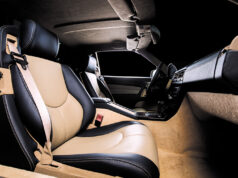Weighing the pros & cons: To buy or lease a van?
Commercial van is an important investment in business. Whether you are replacing or adding a new one to your roster, there are a lot of decisions to make in order to get the best option that fits to your company’s financial capability.
Broadly speaking, there are two options: to buy or lease a van. While there’s no single answer that covers every situation, breaking down its differences and knowing the pros and cons of each could help.
Buying a van means borrowing money from a lending institution or paying for it completely to make it yours. It is the more appealing and comfortable option as you will own the vehicle. On the other hand, it comes with bigger financial responsibility too.
Leasing is different, you won’t technically own the van — you just rent it from the dealership. Normally, it comes with a contract of paying a monthly fee to use the van of your choice. When the contract ends, you have to return the van.
For several reasons, buying a van is a good option. It offers the best value for your company.
Direct Line for Business, a foreign-based company that offers business insurance products to small businesses, enumerated in its Web site some additional points why buying a van is better.
Obviously, buying a van means you will own it. “Once you’ve signed the paperwork and handed over the money, the van is yours. Although vehicles do depreciate in value over time, it’s still a business asset that you have total control over,” the Direct Line for Business said.
Once you own it, some of the best ideas to maximize its function are have it wrapped for advertisement purposes and design its interior to fit to the needs of your business.
Buying a van comes with no restrictions, the Direct Line for Business added. When you lease a van, it has restrictions on things such as mileage limit per year, but when you own the van, there is freedom. You don’t need to ask for permission before doing the things that you want such as going on a long trip, performing maintenance or even selling or trading it.
Furthermore, no monthly lease payment. “Yes, you’ll have the running costs of fuel, maintenance, van insurance and so on, but you won’t have the lease payment to worry about. Once you’ve taken the hit on the purchase, it’s one less financial obligation to worry about. Plus, you can offset a lot of the running costs against tax too,” the Direct Line for Business explained.
The bottom line is: buying a van is the best option for a business that is financially stable and prepared for a long-term commitment.
For Consumer Reports, a nonprofit organization that works side by side with consumers for truth, transparency and fairness in the marketplace, leasing, in some ways, can be more appealing than buying.
The organization said in its Web site that when it comes to leasing a van, “Monthly payments are usually lower because you’re not paying back any principal. Instead, you’re just borrowing and repaying the amount that the car depreciates in the time you have it, plus finance charges.”
Another major advantage of leasing a van is using a new vehicle and driving it in its most trouble-free years. If you lease a van for a business, you’ll always have a new vehicle model. This could save your company from any trouble on the road and help leave a good impression to the public.
Avoiding other costs is another huge advantage of leasing a van. For instance, you don’t have to pay for the van’s maintenance costs, and by avoiding such fee, you can put your money into more beneficial things such as marketing and manpower.
Also, the Consumer Reports said: “You don’t have to worry about fluctuations in the car’s trade-in value or go through the hassle of selling it when it’s time to move on.” In the end, you just drop off the van to the dealership.
On the other hand, the organization also mentioned the disadvantage of leasing a van. When you lease a vehicle, monthly payments go on forever — the longer you keep a vehicle after a loan is paid off, the more value you get out of it.
“Over the long term, the cheapest way to drive is to buy a car and keep it until the wheels fall off,” the Consumer Reports said. — Mark Louis F. Ferrolino



